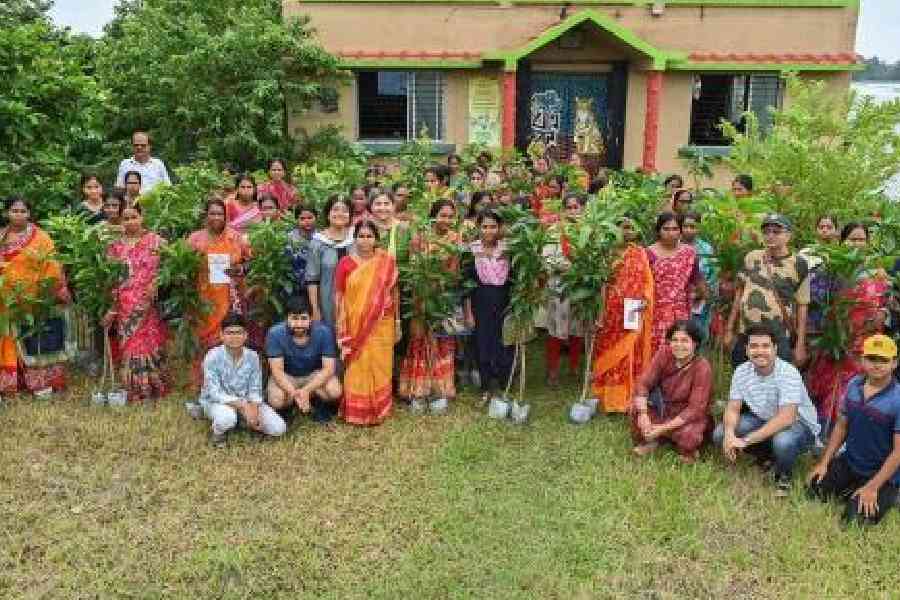Around 50 women living on the fringes of the Sundarban Tiger Reserve (STR) were given two mango saplings each on July 29, the International Tiger Day.
Each woman also received a gachher khata or a tree journal. Written in simple Bengali, the booklet is meant to document the saplings’ journey — help the women record the saplings’ growth, note pollinator activity, flowering cycles and changes in the surrounding micro-environment.
On July 29, 2026, the most attentive caretakers will be felicitated.
The campaign has been initiated by SHER (Society for Heritage and Ecological
Researches), an NGO that works for conservation in the Sunderbans.
The grassroots campaign is titled “Bon Banche, Narir Haatey” (The Forest’s Future in Women’s Hands) at BaghBon — a community knowledge and resource centre in Pakhiralay in Gosaba block on the edge of the STR.
“These saplings won’t end human-wildlife conflict or rebuild forests overnight. They will grow in her backyard, not the forest, feeding her children, not the tiger. Yet, the act of planting them plants a connection. The campaign serves as a reminder that tiger conservation does not begin only with patrols and policies, but also in the daily lives of women who live as the forest’s closest neighbours, women who can be change-makers in sustaining the Sundarban ecosystem,” said a note from the organisers.
The participants were told, through audio-visual presentations, about the role of pollinators — bees, butterflies, birds, and insects — in maintaining both forest health and farm productivity.
“They were told that without pollinators, the entire food and forest cycle breaks down — affecting not only crop yields, forest regeneration, but also the ecological balance that supports prey animals, all of which ultimately impact the tiger. The women learnt how a small mango tree at home connects to a larger ecological chain,” said Joydip Kundu, founder of SHER.










